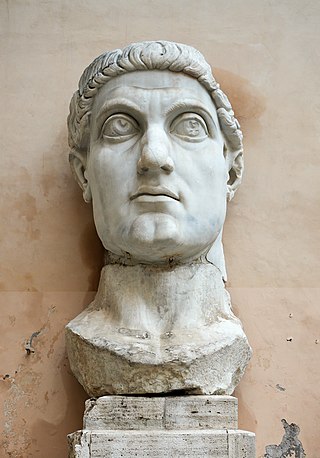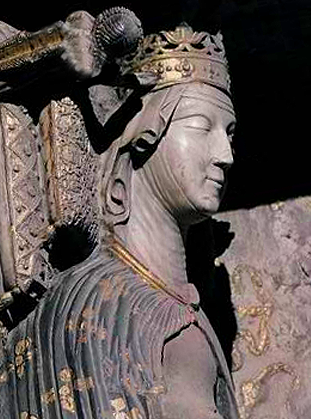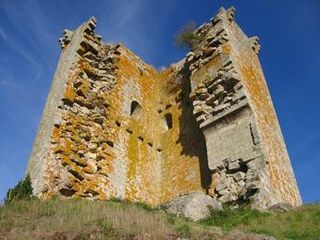Related Research Articles

Constantine I, also known as Constantine the Great, was Roman emperor from AD 306 to 337. He was the first emperor to convert to Christianity. Born in Naissus, Dacia Mediterranea, he was the son of Flavius Constantius, a Roman army officer of Illyrian origin who had been one of the four rulers of the Tetrarchy. His mother, Helena, was a Greek woman of low birth and a Christian. Later canonized as a saint, she is traditionally attributed with the conversion of her son. Constantine served with distinction under the Roman emperors Diocletian and Galerius. He began his career by campaigning in the eastern provinces before being recalled in the west to fight alongside his father in the province of Britannia. After his father's death in 306, Constantine was acclaimed as augustus (emperor) by his army at Eboracum. He eventually emerged victorious in the civil wars against emperors Maxentius and Licinius to become the sole ruler of the Roman Empire by 324.

The history of Spain dates to contact the pre-Roman peoples of the Mediterranean coast of the Iberian Peninsula made with the Greeks and Phoenicians. During Classical Antiquity, the peninsula was the site of multiple successive colonizations of Greeks, Carthaginians, and Romans. Native peoples of the peninsula, such as the Tartessos people, intermingled with the colonizers to create a uniquely Iberian culture. The Romans referred to the entire peninsula as Hispania, from where the name, "Spain" originates. As was the rest of the Western Roman Empire, Spain was subject to the numerous invasions of Germanic tribes during the 4th and 5th centuries AD, resulting in the loss of Roman rule and the establishment of Germanic kingdoms, marking the beginning of the Middle Ages in Spain.

Francisco Jiménez de Cisneros, OFM was a Spanish cardinal, religious figure, and statesman. Starting from humble beginnings he rose to the heights of power, becoming a religious reformer, twice regent of Spain, Cardinal, Grand Inquisitor, promoter of the Crusades in North Africa, and founder of the Alcalá University. Among his intellectual accomplishments, he is best known for funding the Complutensian Polyglot Bible, the first printed polyglot version of the entire Bible. He also edited and published the first printed editions of the missal and the breviary of the Mozarabic Rite, and established a chapel with a college of thirteen priests to celebrate the Mozarabic Liturgy of the Hours and Eucharist each day in the Toledo Cathedral.

The Catholic Monarchs were Queen Isabella I of Castile and King Ferdinand II of Aragon, whose marriage (1475) and joint rule marked the de facto unification of Spain. They were both from the House of Trastámara and were second cousins, being both descended from John I of Castile; to remove the obstacle that this consanguinity would otherwise have posed to their marriage under canon law, they were given a papal dispensation by Sixtus IV. They married on October 19, 1469, in the city of Valladolid; Isabella was 18 years old and Ferdinand a year younger. It is generally accepted by most scholars that the unification of Spain can essentially be traced back to the marriage of Ferdinand and Isabella. Their reign was called by W.H. Prescott "the most glorious epoch in the annals of Spain".
Denys Hay was a British historian specialising in medieval and Renaissance Europe, and notable for demonstrating the influence of Italy on events in the rest of the continent.

Catherine of Lancaster was Queen of Castile by marriage to King Henry III of Castile. She governed Castile as regent from 1406 until 1418 during the minority of her son.

The Late Middle Ages, or late medieval period was the period of European history lasting from AD 1300 to 1500. The Late Middle Ages followed the High Middle Ages and preceded the onset of the early modern period.
Sir John Huxtable Elliott was a British historian and Hispanist who was Regius Professor Emeritus at the University of Oxford and honorary fellow of Oriel College, Oxford, and Trinity College, Cambridge. He published under the name J. H. Elliott.
Martin David Goodman, FBA is a British historian and academic, specialising in Roman history and the history and literature of the Jews in the Roman period.

Scotland in the Middle Ages concerns the history of Scotland from the departure of the Romans to the adoption of major aspects of the Renaissance in the early sixteenth century.
David Ditchburn is a Scottish historian. He is a senior lecturer at Trinity College Dublin.
Sir Albert Raymond Maillard Carr was an English historian specialising in the history of Spain, Latin America, and Sweden. From 1968 to 1987, he was Warden of St Antony's College, Oxford.
A composite monarchy is a historical category, introduced by H. G. Koenigsberger in 1975 and popularised by Sir John H. Elliott, that describes early modern states consisting of several countries under one ruler, sometimes designated as a personal union, who governs his territories as if they were separate kingdoms, in accordance with local traditions and legal structures. The composite state became the most common type of state in the early modern era in Europe. Koenigsberger divides composite states into two classes: those, like the Spanish Empire, that consisted of countries separated by either other states or by the sea, and those, like Poland–Lithuania, that were contiguous.
Anthony James Pollard is a British medieval historian, specialising in north-eastern England during the Wars of the Roses. He is considered a leading authority on the field. He is emeritus professor of the University of Teesside. In addition to works on the Wars of the Roses, he has also written a general history of fifteenth-century England (2000) and books on Robin Hood (2004) and Warwick the Kingmaker (2007), Henry V (2014) and Edward IV (2016). He has in addition edited collections of essays on fifteenth-century history and the history of the north-east of England as a region.

The Irmandiño revolts were two revolts that took place in the 15th-century Kingdom of Galicia against attempts by the regional nobility to maintain their rights over the peasantry and bourgeoisie. The revolts were also part of the larger phenomenon of popular revolts in late medieval Europe caused by the general economic and demographic crises in Europe during the 14th and 15th centuries. Similar rebellions broke out in the Hispanic Kingdoms, including the War of the Remences in Catalonia and the foráneo revolts in the Balearic Islands.
The naval Battle of La Rochelle 1419 was a battle between a Castilian and an allied Flemish-Hanseatic fleet. The Castillian victory resulted in their naval supremacy in the Bay of Biscay. but it also led to a protracted conflict with Flanders and the Hanseatic League, which ended in 1443 with further commercial concessions to Castile. The battle was notable for the use of guns by the Castilian fleet.
Hernando de Talavera, O.S.H. was a Spanish clergyman and councilor to Queen Isabel of Castile. He began his career as a monk of the Order of Saint Jerome, was appointed the queen's confessor and with her support and patronage, became the Archbishop of Granada.

Habsburg Spain was at the height of its power and cultural influence at the beginning of the 17th century, but military, political, and economic difficulties were already being discussed within Spain. In the coming decades these difficulties grew and saw France gradually taking Spain's place as Europe's leading power through the later half of the century. Many different factors, including the decentralized political nature of Spain, inefficient taxation, a succession of weak kings, power struggles in the Spanish court and a tendency to focus on the American colonies instead of Spain's domestic economy, all contributed to the decline of the Habsburg rule of Spain.

The Ottoman decline thesis or Ottoman decline paradigm is an obsolete historical narrative which once played a dominant role in the study of the history of the Ottoman Empire. According to the decline thesis, following a golden age associated with the reign of Sultan Suleiman the Magnificent, the empire gradually entered into a period of all-encompassing stagnation and decline from which it was never able to recover, lasting until the dissolution of the Ottoman Empire in 1923. This thesis was used throughout most of the twentieth century as the basis of both Western and Republican Turkish understanding of Ottoman history. However, by 1978, historians had begun to reexamine the fundamental assumptions of the decline thesis.

This is a timeline of the Qing dynasty (1636–1912).
References
- 1 2 Collins, Roger and Goodman, Anthony. Medieval Spain: culture, conflict, and coexistence Palgrave Macmillan, 2002 ISBN 0-333-79387-0 ISBN 978-0-333-79387-9 at Google Books
- 1 2 Delanty, Gerard Handbook of Contemporary European Social Theory. Routledge, 2006 ISBN 0-415-35518-4 ISBN 978-0-415-35518-6 at Google Books
- ↑ A., MacKay (1970). "Economy and society in Castile in the Fifteenth Century". hdl:1842/19953.
{{cite journal}}: Cite journal requires|journal=(help)